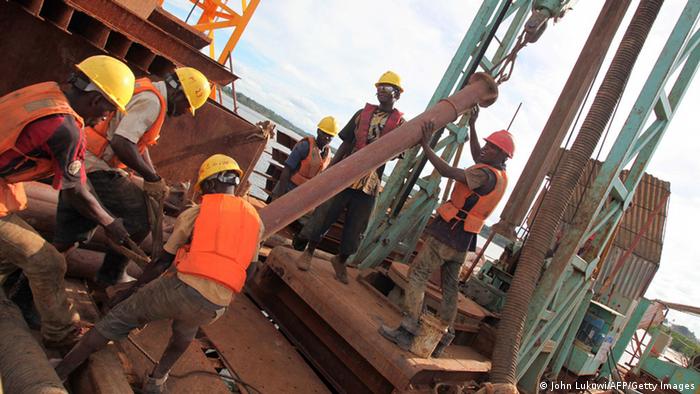France and China link up in global infrastructure projects

Chinese investments in Africa are huge, while France has a lot of catching-up to do (Getty Images)
Paris and Beijing plan to jointly build seven infrastructure projects worth over $1.7 billion ($1.9 billion) in Africa, Southeast Asia and Eastern Europe, making France the first country to establish the third-party market intergovernmental cooperation mechanism with China.
Proponents hope that it will make Chinese foreign investments more transparent, while skeptics suggest that it may simply provide an optical boost for Beijing in the face of growing conflict with the United States.
Following the recent virtual meeting between French President Emmanuel Macron and his Chinese counterpart, Xi Jinping, the two countries signed the Fourth Round China-France Third-Party Market Cooperation Pilot Project List in mid-February.
The list includes projects in infrastructure, environmental protection and new energy, China’s Foreign Ministry spokesperson, Wang Wenbin, said in a statement.
China’s senior planning body, the National Development and Reform Commission (NDRC), said in a press release that “French enterprises have a unique advantage in advanced manufacturing, environmental protection and engineering construction, while Chinese firms have accumulated rich experience in basic infrastructure construction, energy, equipment building and the internet. Enterprises from both countries are complementary, and have a huge potential for third-party market cooperation.”
“I think this sounds very interesting. France could be onto something,” said Martin Jacques, a British journalist, academic and China watcher.
But is it anything new?
“Paris and Beijing have been discussing cooperation on development projects in third countries for years. In a way, this is a way for Paris not to leave China acting alone in Africa,” Marc Julienne, the head of China Research at the Center for Asian Studies of the French Institute of International Relations (IFRI), told DW.
“France shares an alliance with Washington, whereas its China policy is articulated on two legs: one of dialogue and cooperation where it is possible, and one of systemic rivalry and opposition where it has to be,” Julienne said.
“As the world’s second-largest economy, with a large presence in many Francophone areas, it is natural that China and France should seek some sort of cooperation on infrastructure issues,” said Eric K. Hontz, from the Center for International Private Enterprise.
“I do not think this marks a dramatic shift in the relationship between France and the US, but is a way for France to continue to remain engaged and put itself, and its industry, forward into these markets. I think the Macron government is trying to navigate very tricky waters through dialogue and engagement,” he added.


